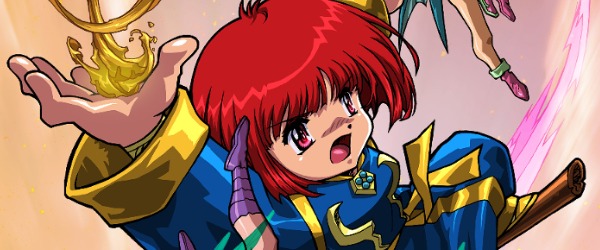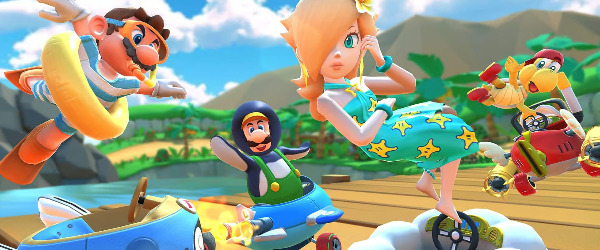
The Stick of Truth - An Ideal Blueprint for Licensed Games - Article
by Ben Burnham , posted on 23 April 2014 / 6,032 ViewsThe day has finally arrived.
After nearly 17 years and multiple failed attempts to turn South Park into a quality video game, The Stick of Truth has finally proven that not only is it possible to make a great game from the brilliant TV series, but in a perfect world it would help set the precedent for licensed games going forwards.

Of course, that’s not likely to be the case; licensed games are typically made quickly and on a strict deadline, while The Stick of Truth’s development was allowed to stretch on for years, including through numerous delays, in order for the final product to be up to series creators Trey Parker and Matt Stone’s high standards. It was developed with their full involvement, something also fairly uncommon with games based on existing licenses. And let’s face it - not everyone who works on a TV show or a movie is necessarily familiar with video games, or with what makes good video games successful.
But what South Park: The Stick of Truth has shown is that in the right hands, with the creators being fully committed to and involved in the project, and with enough time allowed to deliver a quality product to market that doesn’t rely solely on the source material for its appeal, licensed games can be a success. And as in The Stick of Truth’s case, you can add to and build upon the license by allowing fans to experience the property in completely different, and very fun, new ways.
What’s clear from the minute the game begins is just how faithfully the look of the show has made the jump from TV to video game. It occurred to me while watching the opening cinematic that anyone who walked into the room at that moment would have thought that I was watching the show, and I was even more impressed when the cinematic ended, and I was given control of my main character with no noticeable change in the visuals. From the start, you’re controlling an episode of the show, and with the exception of a detour through a retro-styled top down version of Canada later in the game, the “South Park” look never once falters.

As with the TV series, the writing was done by Trey Parker and Matt Stone, who also provide many of the voices. Jamie Dunlap, South Park’s composer, also composed the score. The sharp and often controversial humor of the show has definitely not been toned down (in most countries, at any rate) for the game; even setting aside the triumph of featuring what has to be the first ever interactive “fake abortion” scene in gaming history. These elements are incredibly important to the game’s success because they provide it with an authenticity that few other licensed games have gotten close to achieving. The Stick of Truth might as well be considered the show’s 18th season, and that’s a huge triumph for a foray into a different medium.
It’s this type of authenticity that I wish all other licensed games had. A video game based on a movie or a TV series shouldn’t be a cash in, but an asset to the license. Something like The Stick of Truth not only feels like a natural and real addition to the show, but it feels like something that fans have to experience; a major piece of the South Park puzzle. And the game’s good enough to have earned that status.
Of course It also has to be said that developing a game based on a licensed property doesn’t come without its share of challenges. More than many other subgenres, licensed games have a responsibility to appeal to and be playable by their fanbase; a group of people who may not all be too familiar with video games. The Stick of Truth I think handles this almost perfectly, and it’s due to Trey Parker and Matt Stone not only being gamers themselves, but having the ability to understand what their fans would want out of a South Park video game.

Their decision to develop what’s essentially an open world and turn-based(!) RPG was definitely a brave one, but it’s one that showed right off the bat that hidden under the excellent use of the license would be an actual video game. Trey and Matt, along with developer Obsidian, certainly could have created a South Park game where you ran around and shot at things, and it would have been much simpler, and likely would have been just as funny. But in going the surprisingly traditional RPG route, they’ve created a game that actually does require some strategy and thought to play, and where the gameplay is distinctive and actually does its own thing. And South Park’s a show where I think much of its fanbase wanted that.
But being a licensed game, it makes some sense that it would be developed with the intention that all South Park fans, even those who don’t know how to play RPGs, could stand a chance at finishing it. Though reception to the game among the critics has been generally positive, the main point of contention seems to be that it’s a little too easy, and though there are three difficulty settings that can be switched between at any time, it’s probably true that many die-hard RPG fans will be challenged by very little in The Stick of Truth.
That said, I don’t think its relative ease hurts it. The Stick of Truth, at least as far as I’m concerned, provides just enough depth for core gamers to have something to mess with and sink their teeth into, while also being easy enough so that any fan of the show can enjoy it, and for the most part it walks this line well. RPGs like Paper Mario take the same approach; they provide a simple and fun experience with a taste of that RPG depth for a fanbase who may not necessarily be into RPGs.

It’s not flawless. Though the gameplay’s solid, there are various issues with the control scheme, some instances of filler, and the length of the game and its amount of side content is by no means substantial by RPG standards.
But it’s a huge achievement in doing exactly what it sets out to do - deliver an authentic South Park experience that lets you feel like you’re a part of the show and a part of its world. The South Park humor and presentation have made the jump perfectly, and there’s so much in here that its fans are going to love. South Park: The Stick of Truth was definitely a risk; when conceiving a game based on a hit adult cartoon series, very rarely would one expect its inspiration to include the likes of Earthbound and Paper Mario.
If only all licensed games were this good; could you imagine if when buying a game like Iron Man, you were getting a playable Iron Man experience that was every bit as good as the movie? One that built upon the universe and the characters and actually made the property even better?
South Park: The Stick of Truth might not inspire as much enjoyment among non-fans as something like the Batman: Arkham series, another recent example of a quality licensed game, has done, but Trey Parker, Matt Stone, and the team at South Park Digital Studios and Obsidian have nevertheless created something that, speaking as a South Park fan, is nothing short of being fucking sweet. And if all licensed games going forwards were at this level of quality, I think the industry as a whole would be at an even better place.






















